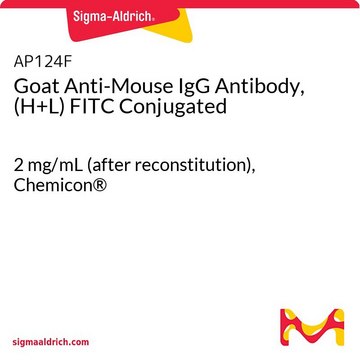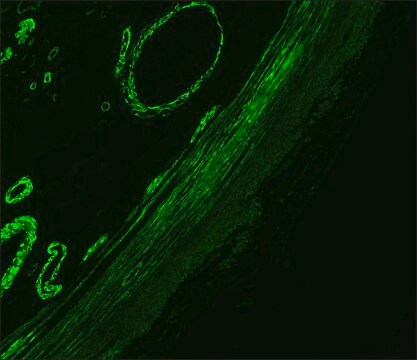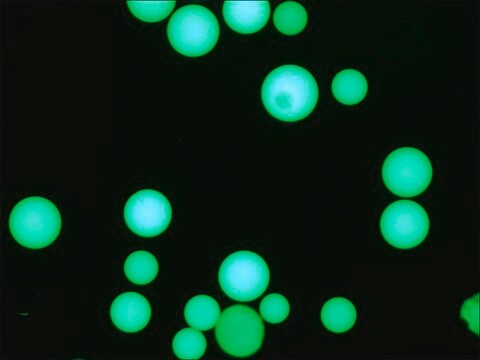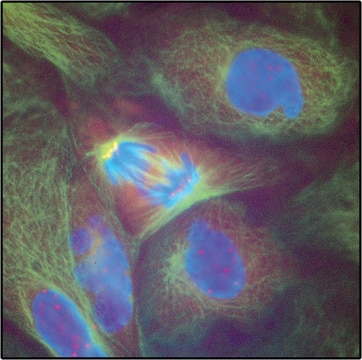Wichtige Dokumente
F5897
Anti-Mouse IgG (Fc specific)–FITC antibody produced in goat
affinity isolated antibody, buffered aqueous solution
Synonym(e):
Goat Anti-Mouse IgG (Fc specific)–Fluorescein isothiocyanate
About This Item
Empfohlene Produkte
Biologische Quelle
goat
Qualitätsniveau
Konjugat
FITC conjugate
Antikörperform
affinity isolated antibody
Antikörper-Produkttyp
secondary antibodies
Klon
polyclonal
Form
buffered aqueous solution
Lagerbedingungen
protect from light
Methode(n)
immunohistochemistry (formalin-fixed, paraffin-embedded sections): 1:200
indirect immunofluorescence: 1:64
Lagertemp.
−20°C
Posttranslationale Modifikation Target
unmodified
Suchen Sie nach ähnlichen Produkten? Aufrufen Leitfaden zum Produktvergleich
Allgemeine Beschreibung
Spezifität
Immunogen
Anwendung
- immunohistochemistry
- immunofluorescence
- anti-nuclear antibody assay
Biochem./physiol. Wirkung
Sonstige Hinweise
Physikalische Form
Angaben zur Herstellung
Haftungsausschluss
Sie haben nicht das passende Produkt gefunden?
Probieren Sie unser Produkt-Auswahlhilfe. aus.
Lagerklassenschlüssel
10 - Combustible liquids
WGK
nwg
Flammpunkt (°F)
Not applicable
Flammpunkt (°C)
Not applicable
Persönliche Schutzausrüstung
Eyeshields, Gloves, multi-purpose combination respirator cartridge (US)
Hier finden Sie alle aktuellen Versionen:
Besitzen Sie dieses Produkt bereits?
In der Dokumentenbibliothek finden Sie die Dokumentation zu den Produkten, die Sie kürzlich erworben haben.
Unser Team von Wissenschaftlern verfügt über Erfahrung in allen Forschungsbereichen einschließlich Life Science, Materialwissenschaften, chemischer Synthese, Chromatographie, Analytik und vielen mehr..
Setzen Sie sich mit dem technischen Dienst in Verbindung.








